*The contents of this article are human-created.*
This post may contain affiliate links. Please see our full disclosure for details.
Delving into the whole picture of nutrition, nourishment and holistic wellness.
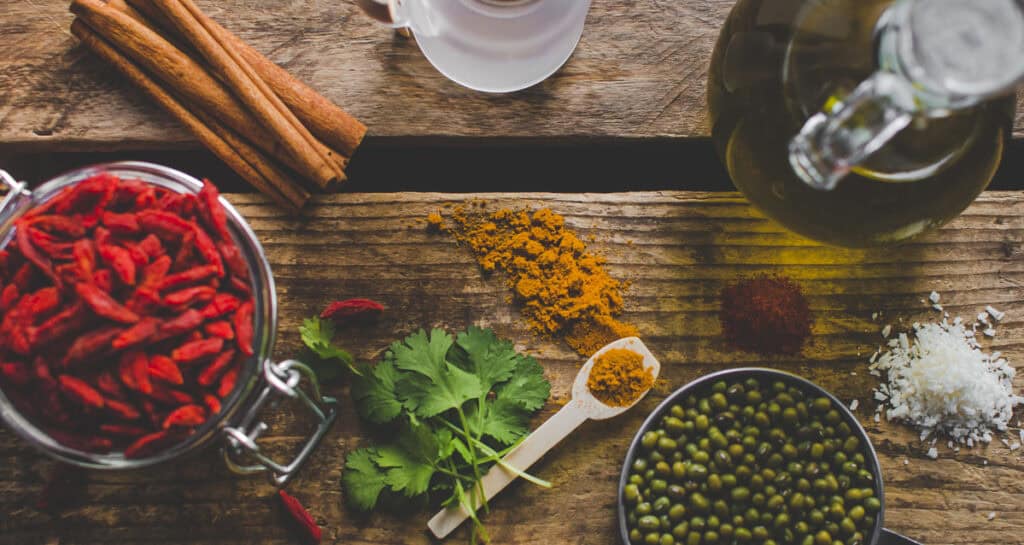
Most people think of nutrition simply as what we eat. However, it goes far beyond that. Nourishment does not begin and end with our diet, it encompasses every aspect of our lives.
From the quality of our food to the quality of our lifestyle, Holistic Nutrition is about taking the WHOLE being into consideration. Mind, body and spirit.
Uniquely You
Each of us is unique. From our personalities and preferences to our bodies and genetic expressions, no one is exactly the same. This means that when it comes to holistic nutrition, there is no one-size-fits-all approach. It's all about figuring out what does and does not benefit your individual health and well-being. On top of that, what we need in terms of nutritional nourishment and emotional fulfilment will change as we age, and as we navigate the turmoil and triumphs of life. What's good for one may not be good for all.
Synergy - It's All Connected
Synergy isn't just about the people we vibe with. It's everywhere you look in nature, and our bodies are no exception. Every organ, gland, and cell is in constant communication, working together in one intricately interconnected system. Not to mention, the nutrients we ingest also interact and work in tandem. When in balance, they work in perfect harmony, like a well-oiled machine. On the other hand, when there is a deficiency or toxicity, it can cause a domino effect, throwing the whole system off balance.
Mind, Body, Spirit (The Holy Trinity)
Now, I'm not about to start preaching here, but there is something to be learned from the Holy Trinity. Just as God, Jesus Christ (our lord and saviour) and the Holy Spirit are one and the same, the body, mind and spirit are not as separate as one might think. Ultimately, they make up the greater whole of each of our beings. If one gets thrown off balance, it can throw the other two aspects of ourselves off as well. On the flip side, when body, mind and spirit are all flourishing in harmony, we have a much better chance at thriving rather than simply surviving.
This means Holistic Nutrition isn't just about nourishing our bodies physically with quality, whole foods, fresh air, and movement. It's also about nourishing our mental well-being with exposure to nature, natural sunlight, quality sleep, loving relationships, enjoyable activities (aka play) and nourishing ourselves spiritually by cultivating a practice of faith (whatever that may look like for you).

In fact, more and more studies are revealing that those with a healthy spiritual connection, belief, or practice tend to have better-regulated nervous systems and experience less depression and anxiety.
Since we need to regularly enter states of "rest and repair," this can directly translate to better physical health. From aches and inflammation to poor digestion and IBS, a chronically dysregulated nervous system can lead to a whole slew of physical symptoms. Which brings us full circle since physical health (especially gut health) plays a key role in mental health.
I can also personally attest that putting my faith and trust in the almighty creator has created much more peace in my inner being.
The Food We Eat
Quite obviously, the food we eat is one of the most crucial aspects of holistic nutrition. The quality of our food is directly linked with the state of our physical and mental health. When the body is well nourished and well hydrated, it is better equipped to fight off viruses and bacteria, eliminate toxins, neutralize free radicals and repair any damage that can lead to disease.
This means getting adequate protein, fibre, complex carbs and fatty acids. Furthermore, when we ditch processed foods and stick to organically grown whole foods, we have fewer toxins to eliminate while improving the health of our gut flora, which can lead to improved mood and mental states.
"When diet is wrong, medicine is of no use. When diet is correct, medicine is of no need."
- Ancient Ayurvedic Proverb
The Way We Move
As mentioned above, movement and physical activity play a crucial role in our overall health. Exercise is not only great for heart, bone and joint health, it's also excellent for mental health. In fact, many experts say it's one of the best antidotes for depression and anxiety.
Of course, there's no arguing that any exercise and movement is far better than none at all. The way we move does matter. Just like food, too much can be harmful, causing physical injury or hormonal imbalances. Women especially can benefit from adjusting their workout routines to their bodies' natural cycle, allowing for more gentle movement and rest during menstruation.
The Skin of the Matter
Our skin is the largest organ of the body. It acts as a shield as well as a way for our body to eliminate toxins.
However, the skin is also porous and absorbent. So, when it comes to holistic nutrition, we would be fooling ourselves to think what we use topically doesn't matter as much as what we ingest internally. Anything we put directly on our skin is absorbed into our bodies. And anything that goes into our bodies can either promote health or feed disease.
Hidden Chemicals
Unfortunately, many commercial brands of shampoo, body wash, lotions, shaving cream, toothpaste, sunscreen and even much of our clothing are filled with ingredients and materials that can cause more harm than good. While I won't deny that it is impossible to avoid everything toxic, reducing our chemical load can greatly lessen the burden on our bodies. Especially since many of these chemicals can build up in our bodies over time, they are often linked to cancer and degenerative neurological disorders such as Parkinson's and Alzheimer's.
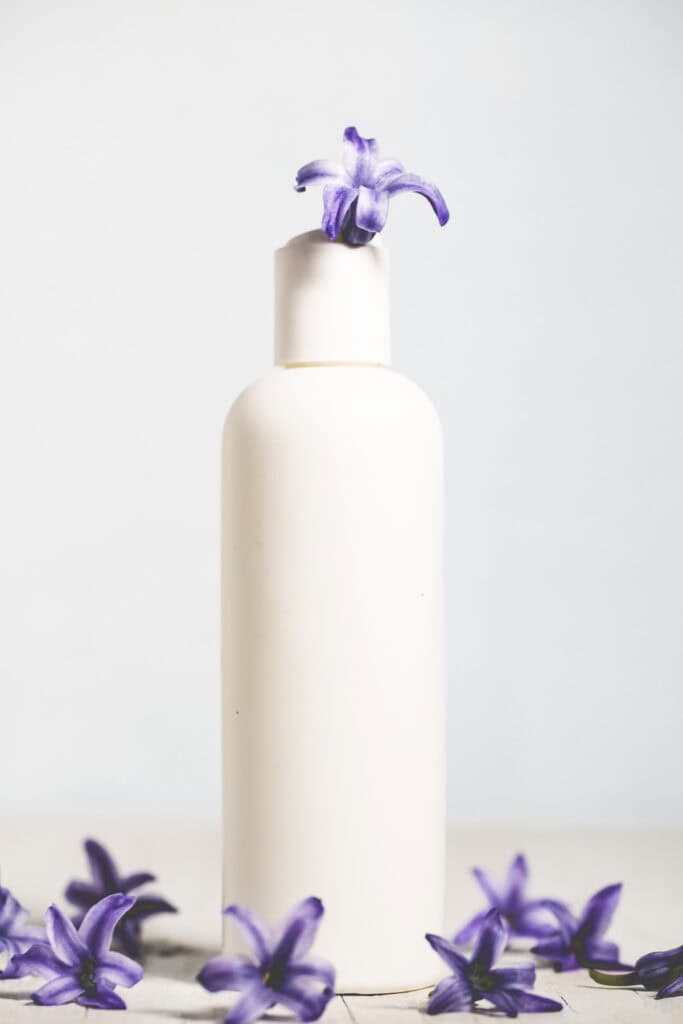
This means it's always best to opt for products and clothing made from natural ingredients and materials.
In fact, recent studies have found highly concentrated amounts of PFAs (forever chemicals) in name-brand yoga pants and workout gear. This is especially concerning since the skin becomes extremely absorbent and porous when we are working up a sweat.
One major problem is that these toxin-laden products seem harmless since (for the most part) they quietly accumulate in the body until eventually disease strikes. However, if you are under a lot of stress, have unresolved trauma or are a highly sensitive person like me, your nervous system has a much lower tipping point. This means you may experience immediate physical reactions, such as hives or a skin rash, after coming into contact with certain chemicals or materials.
One of the simplest ways to reduce your chemical load is to ensure the products you use topically are made with clean and natural ingredients—or make your own! To go a step further, opt for clothing made with natural, breathable materials such as 100% organic linen, cotton or hemp.
A Breath of Fresh Air
Breath is life. But without quality air to breathe, we won't have much life (or Qi).
Just like the toxic chemicals sprayed on food and snuck into household products, the toxins from air pollutants can build up in our lungs and bodies over time. However, this isn't just the pollution found in large cities. Building materials, furniture, appliances, paints and other household items can off-gas, contaminating the air in our personal environments. In fact, even dust can carry heavy metal particles that we can end up inhaling.
Again, it's impossible to avoid all toxins. It's part of the world we live in. But there are many things we can do to reduce the amount we are exposed to. Opening windows is a great way to clear out the stale and stagnant air in your house or workplace. House plants are also a great way to purify the air in your indoor spaces. Dusting, sweeping and vacuuming regularly can also reduce the amount of heavy metals and other toxic particles in your home.
The quality of air where you exercise also plays a crucial role. While the air quality is generally better outside than in gyms, running or biking on or near busy streets (especially during rush hour) can greatly increase the amount of pollutants inhaled. Exercising near water and trees is the best way to ensure you're not putting yourself at risk of inhaling a harmful amount of pollutants.

And, of course, spending plenty of time outdoors in wooded and well-treed areas is the best way to oxygenate your lungs, blood and brain with fresh, naturally purified air.
"It is not so much for its beauty that the forest makes a claim upon men's hearts as for that subtle something, that quality of air, that emanation from old trees, that so wonderfully changes and renews a weary spirit."
- Robert Louis Stevenson
Stressing Stress!
Stress is no joking matter. In Western society, it's a common belief that we need to hustle and grind to achieve any sort of success.
How many social media memes have you seen that say something similar to, "Good things come to those who hustle"? It has become so glorified that many feel shame and guilt for taking time for themselves or their health. However, pushing ourselves to go, go, go with no off switch is a recipe for disaster.
As mentioned above, a chronically dysregulated nervous system leads to a slew of physical symptoms. This is because we need to regularly enter states of "rest and repair" for optimal digestion, nutrient absorption and overall health. So, when it comes to holistic nutrition, reducing stress and nourishing the nervous system is just as crucial as fueling up with healthy, whole foods.

Simply tuning in and listening to how our bodies feel is something many of us have to relearn. And oftentimes, it can be too late. When we keep ignoring these little signals to slow down, it will eventually lead to burnout, or worse.
Nourishing the mind and soul is a great antidote to stress. Carving out time for rest, relaxation, and activities that bring you joy is just as important as crushing those goals. In fact, giving yourself time to recharge can give you the energy to hit them sooner.
Touching on Touch
Lastly, but definitely not least, comes touch. Simply put, we cannot survive without physical touch. Connecting emotionally, intellectually, and physically with others is essential for our survival and overall well-being.
So, when it comes to holistic nutrition, touch and relationships do not fall by the wayside. Nourishing this aspect of ourselves is incredibly important for nervous system regulation and mental health. Even if you're an introvert like me, cultivating just a few healthy relationships, as well as having animal companions, can contribute to a better-regulated nervous system and healthier mental states. Furthermore, learning to assert boundaries and walk away from toxic relationships and environments is just as crucial for your overall well-being.

As mentioned above, loving touch also plays a major role in our well-being and survival as infants. Hugs are one of the most healing forms of touch we can give and receive. They are proven to provide many health benefits, including boosting the immune system, lowering blood pressure, reducing stress, easing pain and depression, as well as lessening fatigue.
That being said, the most nourishing hugs do come from a trusted companion rather than a complete stranger. And for all my fellow animal lovers, our beloved pets do count! The same health-promoting hormone, oxytocin, is released when we bond with both our fellow humans and our four-legged companions.
"We need four hugs a day for survival, eight hugs a day for maintenance and twelve hugs a day for growth."
- Virginia Satir
The Sum of It All
Holistic Nutrition is not just about food, diet and exercise. It's about nourishing every aspect of yourself: mind, body and soul.

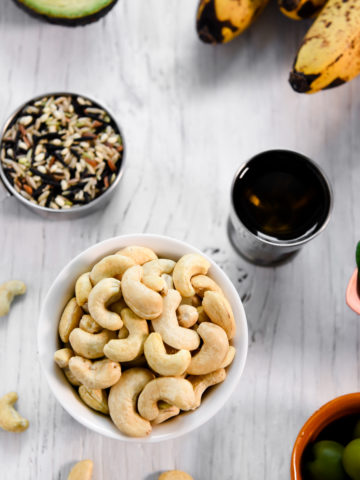
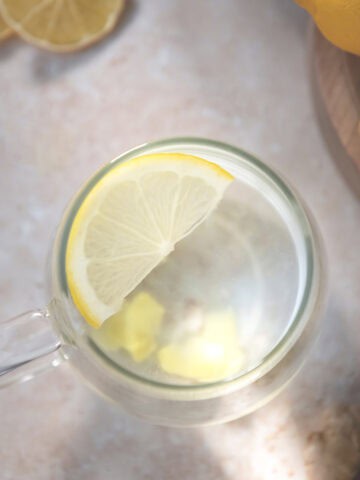
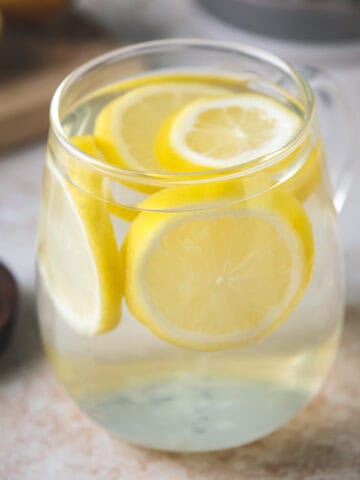
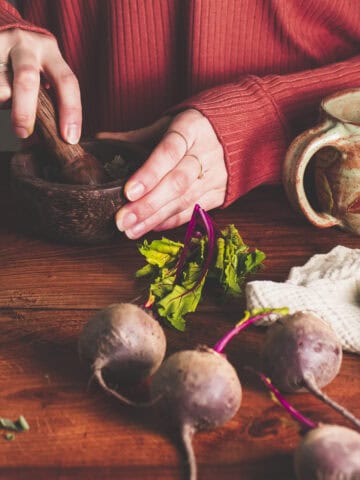
Rate this Recipe & Share How it Turned Out!